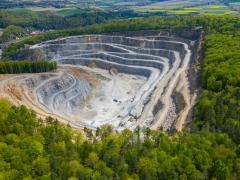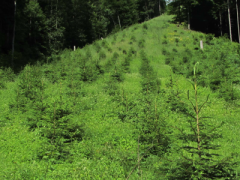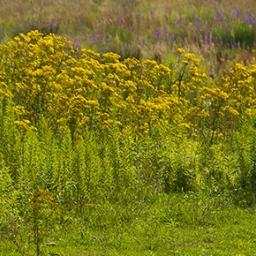Nature-based solutions in Europe
Climate change, biodiversity loss and degradation of ecosystems are linked and all have devastating consequences for our economic and social stability, health and human well-being. Working with nature is increasingly recognised as an efficient way to tackle these growing challenges, according to the new European Environment Agency (EEA) report Nature-based solutions in Europe: Policy, knowledge and practice for climate change adaptation and disaster risk reduction. PBL Netherlands Environmental Assessment Agency contributed to this report.
The EEA report provides up-to-date information for policymakers on the scientific evidence base of nature-based solutions and how to apply them for climate change adaptation and disaster risk reduction, also considering multiple societal, economic environmental co-benefits. Drawing on selected examples across Europe, the report shows how impacts of extreme weather and climate-related events are already tackled in this way. It also assesses global and European policies and how nature-based solutions are increasingly being integrated in efforts to shift towards sustainable development. PBL, as a partner in the European Topic Centre on Climate Change Adaptation (ETC/CCA) has been one of the lead authors of this report.

Nature-based solution can play a role in tackling climate change
- Nature-based solutions for climate change adaptation and disaster risk reduction are actions that work with and enhance nature to restore and protect ecosystems and to help society adapt to the impacts of climate change. They also slow further warming, while providing multiple additional benefits for society, economy and environment.
- The concept of nature-based solutions for climate change adaptation and disaster risk reduction is increasingly embedded in global and EU policy frameworks for sustainable development. However, better coherence across policy domains, prioritisation at EU-level and more project design is still needed.
- Agreed standards, quantitative targets, measurable indicators and evaluation tools for nature-based solutions at EU level can help to assess progress, effectiveness and multiple benefits.
- Stakeholder involvement, dialogue and co-design of tools and measures are key to increase awareness, to resolve potential stakeholders' conflicts and to create social acceptance and demand for nature-based solutions.
- A mapping of existing and potential new nature-based solutions can help identify priority areas based on desired services, increasing the consideration of trade-offs between climate change and biodiversity aims.
Authors
Specifications
- Publication title
- Nature-based solutions in Europe
- Publication subtitle
- Policy, knowledge and practice for climate change adaptation and disaster risk reduction
- Publication date
- 15 April 2021
- Publication type
- Report
- Page count
- 159
- Publication language
- English
- Magazine
- Report European Environment Agency
- ISBN
- 978-92-9480-362-7
- ISSN
- 1977-8449
- Issue
- 01/2021
- Product number
- 4336




